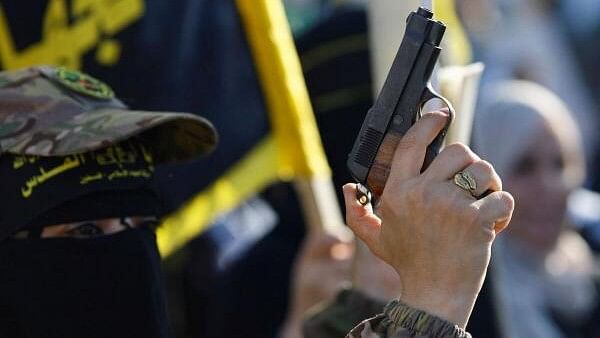
The Israeli government said Saturday evening that it was cutting off its electricity supply for Gaza, which gets two-thirds of its power from Israel.
Credit: Reuters Photo
Israel vowed retaliation after Palestinian militants attacked southern Israel in the broadest invasion of its territory in 50 years, with Prime Minister Benjamin Netanyahu on Saturday night urging Palestinians living in Gaza to “leave now” and telling Israelis to brace for a protracted campaign.
“We will turn all the places that Hamas hides in and operates from into rubble,” Netanyahu said Saturday night, in a speech from Tel Aviv, Israel.
After an assault without recent precedent in its complexity and scale — in which the militants crossed into Israel by land, sea and air — Israel responded with heavy strikes on Gazan cities. Hamas continued to fire rockets into Israel as well.
The Israeli government said Saturday evening that it was cutting off its electricity supply for Gaza, which gets two-thirds of its power from Israel.
The streets of Gaza City, the enclave’s largest urban area, emptied out as residents gathered at schools to take shelter. Lines also formed at supermarkets, as people stocked up on supplies. And Gazans living close to the Israeli border fled to areas farther inside the enclave, fearing an Israeli ground invasion.
However Israel proceeds, the military push to retake towns seized by the militants promises to be difficult and deadly. The Israeli military said that Hamas had taken Israeli soldiers and civilians into captivity, complicating the reprisal, and it remained unclear how many communities the militants still held.
By Saturday evening, the Israeli military said that many Israelis had been abducted and taken into Gaza, and an official said that at least 250 Israelis had been reported killed and more than 1,400 wounded. The Gaza Health Ministry said that at least 234 Palestinians had been killed in either gunbattles or airstrikes.
Here’s what else to know:
—Netanyahu spoke with President Joe Biden by phone Saturday afternoon. Biden said that “the United States unequivocally condemns” the attack and that “Israel has a right to defend itself and its people.”
— The timing of the assault was striking, hitting Israel at one of the most difficult moments in its history. It followed months of profound anxiety about the cohesion of Israeli society and the readiness of its military, a crisis set off by the far-right government’s efforts to reduce the power of the judiciary.
— Muhammad Deif, the leader of Hamas’ military wing, said in a recorded message that the group had decided to launch an “operation” so that “the enemy will understand that the time of their rampaging without accountability has ended.” He cited Israel’s occupation of the West Bank, recent Israeli police raids on the Al-Aqsa Mosque in Jerusalem and the detention of thousands of Palestinian militants in Israeli jails.
— The attack also coincided with Israel’s efforts to seal a landmark peace deal with Saudi Arabia, which has never recognized the Jewish state out of solidarity with the Palestinians, but had seemed ready to change its policy. It was not immediately clear how the normalization effort would be affected. The Saudi government issued a statement of concern about the situation and called for a cessation of hostilities.